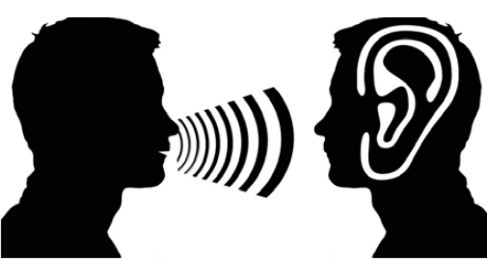Importance of Listening activity in Learning A New Language

Learning a language requires an enormous effort in terms of understanding, speaking, listening, and writing. Since speaking and writing develop with a gradual language experience from the surroundings, listening predominates all aspects of language learning. While learning a language, one may start with scribbling the alphabet which may give him a brief account of initial experience but how can one obtain the knowledge of pronunciation, syntax, and sentence structure, needs to be thought about.
Listening, the major language skill and the first one to develop in human beings among other senses is interconnected to other language skills. Since it is a receptive skill where a learner receives all nuances of a language, be it sentence structure, word formation, or variation and stress on the sound and pitch, it enables a learner to gain expertise in a particular language.
Listening is an important skill for a learner of a new language which procures substantial confidence in dealing with an interactive environment. Having said that, sometimes it is not easy for a learner to have good listening skills due to some environmental and individual problems.

While learning a foreign language, a learner may face the following problems in active listening:
- A quick conversation may perplex the learner as he may not be able to grasp the pronunciation, the idea expressed rapidly.
- Unfamiliarity with words, phrases, and colloquial language may not develop the learner’s interest; hence he may be less interested in listening.
- The pronunciation of words with a particular liaison by a native speaker may not be comprehensible by a language learner.
- The conversational language often has ungrammatical structures combined with slang that may not be familiar to the learners.
- Foreign language learners usually spend more time reading or writing, as the result, they get less exposure to different kinds of accents.
- Some environmental issues, such as noise in the surroundings, also, lack of proper resources such as microphones, tape recorders play an important role in distracting learner’s attention.
There are numerous strategies put in place to match different listening situations for learners. To overcome challenges in listening activities.

Here are few solutions that can help students as well as teachers to find better outcomes
- Learners can start with listening to a short and simple conversation or some formal talks which can make them used to a foreign language.
- Prior knowledge of regional accents and colloquial language would help the learners to understand what is being expressed.
- Teachers can classify listening materials according to learners’ level and gradually the material should progress from simple to complex level.
- Adding visual graphs, pictures, and diagrams aligned with the topic will help learners guess and imagine easily.
- The teacher can support learners to develop the skill by encouraging them to anticipate specific information, interpretation and listening to the gist.
Listening activity is often considered an easy activity by the teachers as all they have to do is to turn the tape recorder on and ask students to find out information, in learners’ perspective, it is extremely difficult. But it requires a lot of improvement to make it more useful for the learners.